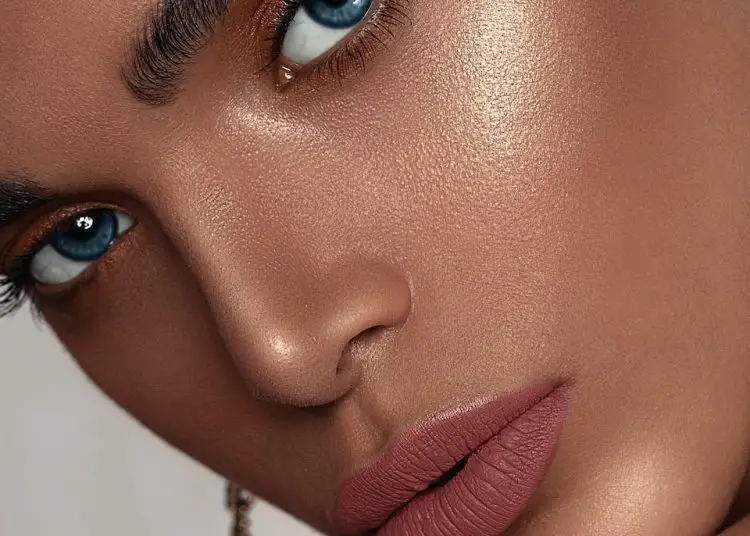Having a consistent skincare routine is essential for maintaining healthy and radiant skin. However, with so many different products and ingredients available, it can be overwhelming to know where to start. That’s where skincare apps come in – they use advanced technology and personalized algorithms to help you create a routine that’s tailored to your specific skin concerns and goals. In this article, we will be discussing free skincare apps that can help you build your own personalized skincare routine.
What is Skin Assessment
Best Free Skin Assessment Apps – 2023
- SkinVision – This app uses AI technology to analyze your skin and provide personalized skincare recommendations. It also tracks your skin’s progress over time and alerts you to any potential skin concerns.
- Curology – This app connects you with a licensed skincare professional who can create a personalized skincare plan for you based on your unique skin concerns. It also offers a monthly subscription service for custom-formulated skincare products.
- Perfect365 – This app allows you to upload a photo of yourself and try on different makeup looks. It also provides skincare recommendations based on your skin type and concerns.
- Dermalogica Face Mapping – This app allows you to take a skin analysis quiz and get personalized recommendations on how to improve your skin. It’s available on the website and in-store.
- Kiehl’s Skin Tone Analysis – This app allows you to take a quiz and get personalized skincare recommendations from the brand.
- Dermstore Skincare Quiz – This app offers a quiz that assesses your skin type and recommends products accordingly.
Please note that these are just suggestions, and it’s always best to consult a dermatologist or skincare professional for personalized advice.
FAQ
- What is the purpose of a skin assessment?
The purpose of a skin assessment is to evaluate the overall health and appearance of the skin, identify any potential problems, and recommend appropriate treatment or management options. - Who can perform a skin assessment?
Skin assessments can be performed by a variety of healthcare professionals, such as dermatologists, primary care physicians, or skincare professionals such as estheticians, as well as self-assessment. - What should I expect during a skin assessment?
During a skin assessment, a healthcare professional will typically examine your skin, noting any abnormalities, such as rashes, discoloration, or growths. They may also ask about your medical history and any medications you are currently taking. - Is a skin assessment painful?
A skin assessment is not typically painful. However, if a healthcare professional needs to take a skin sample for further testing, there may be some discomfort associated with the procedure. - What should I do to prepare for a skin assessment?
To prepare for a skin assessment, it is a good idea to avoid using any new skincare products or medications for a few days prior to your appointment. You should also avoid tanning or using self-tanning products. - Are there any risks associated with a skin assessment?
Skin assessments are generally considered safe and non-invasive. However, as with any medical procedure, there is always a small risk of complications, such as infection or bleeding. - How often should I have a skin assessment?
The frequency of skin assessments will depend on your individual needs and skin type. It is recommended to have a skin assessment at least once a year, or more frequently if you have a history of skin problems or a family history of skin cancer. - How do skin assessment apps and websites work? Skin assessment apps and websites use a combination of machine learning algorithms and image analysis to evaluate the appearance of the skin. Users upload a photo of their skin and the app or website will analyze the image and provide a report on the health and condition of the skin.
- Are skin assessment apps and websites accurate? The accuracy of skin assessment apps and websites can vary. Some apps and websites have been validated by dermatologists and have been found to be quite accurate, while others may not be as reliable. It’s important to research and choose a reputable app or website, and not to rely solely on the results of an app or website.
- Can skin assessment apps and websites diagnose skin conditions? Skin assessment apps and websites are not designed to diagnose skin conditions and should not be used as a substitute for a visit to a healthcare professional. They can provide information about the health of the skin, but a proper diagnosis should be made by a licensed healthcare professional.
- Are skin assessment apps and websites private and secure? It’s important to check the privacy and security policies of skin assessment apps and websites before using them. Look for information about how the app or website collects, uses, and protects your personal information, as well as the images you upload.
- How can I choose a reputable skin assessment app or website? When choosing a skin assessment app or website, look for one that has been validated by dermatologists or other healthcare professionals. Also, check for customer reviews and testimonials. Additionally, check the privacy and security policies of the app or website to ensure your personal information will be protected.
- Can skin assessment apps and websites recommend skincare products? Some skin assessment apps and websites may recommend skincare products based on the results of the assessment. However, it’s important to keep in mind that these recommendations are not necessarily tailored to your individual needs and should not be used as a substitute for the advice of a skincare professional.
- Are skin assessment apps and websites free? Some skin assessment apps and websites may be free to use, while others may require a subscription or charge a fee for certain features. It’s important to check the pricing and features of any app or website before using it.
- Can I use skin assessment apps and websites on my phone or tablet? Many skin assessment apps and websites can be used on a phone or tablet, and some are specifically designed for mobile use. It’s important to check the compatibility of an app or website with your device before using it.
- Are there any limitations to using skin assessment apps and websites? Skin assessment apps and websites have certain limitations and should not be used as a substitute for the advice of a healthcare professional. They may not be able to detect certain skin conditions or may give inaccurate results. It’s important to use them as a supplement to your regular skin care routine and not to rely solely on their results.
- Can I use skin assessment apps and websites for monitoring my skin condition over time? Some skin assessment apps and websites allow users to track their skin condition over time by taking multiple photos and comparing the results. However, it’s important to note that these apps and websites should not be used as a substitute for regular visits to a healthcare professional and should be used as a supplement to your regular skin care routine.
- Can I use skin assessment apps and websites for monitoring mole changes?
Some skin assessment apps and websites have a mole tracking feature that allows users to monitor changes in their moles over time. However, it’s important to note that these apps and websites should not be used as a substitute for regular visits to a healthcare professional and should be used as a supplement to your regular skin care routine. - Are there any concerns related to the use of skin assessment apps and websites?
While skin assessment apps and websites can be a useful tool for monitoring the health of your skin, they can also raise concerns related to privacy and security, as well as the accuracy of the results. It’s important to research and choose a reputable app or website and to consult with a healthcare professional if you have any concerns about your skin. - How can I use the results of a skin assessment app or website?
The results of a skin assessment app or website should be used as a supplement to your regular skin care routine and should be discussed with a healthcare professional. They may help identify potential skin concerns and guide skincare decisions, but they should not be used as a substitute for professional advice.
Conclusion
Conclusion Summarize the importance of a personalized skincare routine and the benefits of using a skincare app Encourage readers to try out one or more of the apps listed in the article Remind readers that it’s always best to consult a dermatologist or skincare professional for personalized advice.




























